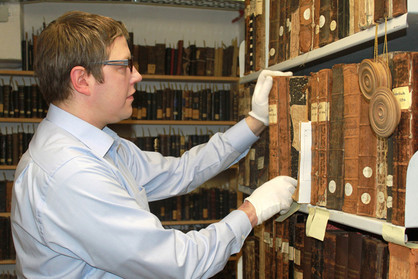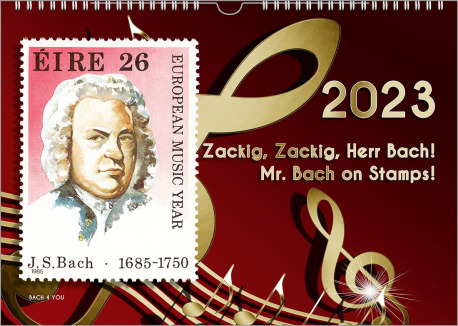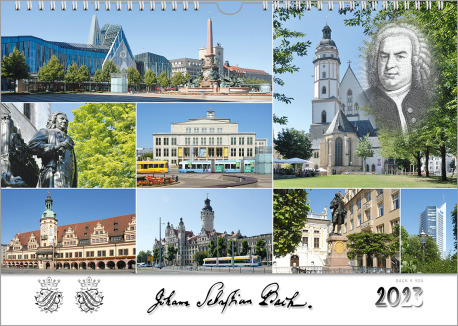Genealogy as a Passion
Do you get a feeling? Thousands of books – and you are looking for that one entry: Christian Hoske is researching in that archive. You learn more about Christian Hoske on this page.
If you are just interested in the genealogy of the Bach family around Johann Sebastian Bach, than you are actually wrong here! Because this page is about genealogy in general. Just click here and I guide you to the page, were you actually wanted to get.
Advertisement
99 Music Calendars, Composers Calendars and Bach Calendars
It's not only a Bach calendar, but a Bach postage stamps calendar as well: three sizes, European style, 2024 + 2025. US + EU style. To the shop.
Discover All Five Bach Online Stores
Your Ancestors – A Mystery
There are two interesting assumptions, which are designed to initiate these pages of my Bach website. First of all it seems most people start to be interested in genealogy not earlier as at the age of 50. Earlier you may be already excited by the research of a friend, of your uncle or you listen to the exciting reports of an acquaintance. But seeing your self as a researcher, if at all, is what you plan for a later section of your life. Or, you can't imagine such a passion as a hobby of your future at all.
Plus, there is an exquisite poem regarding the passion of ancestry. It's written, that in every generation there seems to be this one individual, who is interested, what his ancestors have experienced. Who were they and where did they live? To explore and discover this, to preserve it and to hand it down to coming generations, seems to be exciting for just this one person of one familyand per generation.
In my family it's crystal clear: this was my grandfather, who did ancestry. He was it, who, with his research, leveled my path into the past. Far back into the past. Without his groundwork and without his expertise we would never have been able to get that deep into the family history. Today we try, not only to discover the secrets of my family, but the genealogy of the greatest musician of all times as well. Today we may accomplish both with a never present medium, which former generations of genealogist never could use: the internet.
An Investment of One Hour
It is a golden tip – and probably you confirm it later – perhaps when it's too late. It happens to almost every family researcher. In each generation, in every family. Do you know the maiden name of your grandmother? If yes, do you know the maiden name of your great-grandmother, too? Probably not. And exactly this is the problem. At least at the beginning of your research, in a time, when you are not yet much interested in your own family history or you plan to do that later as a passion.
Research in your own family in the beginning is really not constant. But rather it begins in steps. The first two steps back in time actually are no challenge. In many cases your parents are still alive and they are those who you ask first about their parents and about their grandparents as well. If their capacity of remembering is good, you already have "conserved" the names and data of four generations after your consultation. That is to say yours, those of your parents, the data of your grandparents plus maybe those of your great-grandparents. However they assume an averaged distance of 25 years per generation. And that means, that you might miss exactly the knowledge about one generation, if you decide for a research as late as age 50 instead of a start, when you are 25 years old. Because at your age of 50 it's absolutely more likely, that your grandparents don't live anymore.This is different, when you are 25.
This one generation can be of very high importance and you will experience it: it's unclear when and in which generation - but with the highest likeliness your research into the past comes to a full stop some day. Because there are no more files, that offer a projection to the next generation back in time. However, often you realize that, with much research, time and energy, there is a way around such "dead ends". This is a research like a roller coaster and once in a while it can be very frustrating. The task to research the next generation, that is to say finding out the names and data of your great-grandparents could be tenfold, compared to the option just to drive to the next vicarage and copy the data – the data of the next following generation.
Back to your grandma. It is likely that the data and names of this generation, which is available when you are around 25 years of age, is lost, when you are 50. And that is to say with the death of your grandparents who actually don't live until they are 110 years old. So, if your are stuck exactly on that level, than it's really annoying, because you now knew that you messed it up.
One hour investment – 100 hours profit. If somebody would offer you such a chance in the stock market, plus there would be no risk coming with it, you wouldn't hesitate one minute. Visit your grandparents. Take a notebook with you and a pen or your tablet with you and invite yourself for a desert or a cup of coffee. Your grandparents will enjoy your visit much and the information from the past is irreplaceable. Write it down. Fold this piece of paper and put it in your family Bible or your family register. After that ... just forget it. So, if you after 25 or even 30 years suddenly enjoy your completely new passion genealogy, you realize, how valuable this first trivial for a beginner was, even before you were interested in that hobby.
Even more: if you are already in your 50s and you just started this passion, than speed up right now! Because with your survey of the oldest family members you get to more persons of this generation and these too won't live forever. It started with the research of my grandfather, which we considered lost for 50 years. However, it was not, the whole research were some 20 entries with a pencil. And with it comes the branch-off direction Bach genealogy, with which I was late for exactly two weeks and a conversation with a Bach genealogy expert would have been so extremely important. I spoke to him 14 days earlier, he was pleased that we would meet. Next he fell ill. And died. I didn't manage to meet him.
Ancestry – Research in the 21st Century
Like in almost every aspect of our life, the research for our ancestors has changed dramatically in last 20 years. All what you could do in the last century, to find your family, is what you are still able to do today. However one option added. And this changes your success chances dramatically and for all coming generations it promises to become even more considerable. It is the computer, the electronic communication and it's the internet.
As silly as the breakdown of the electronic above in genealogy seems to be: these more three disciplines are important. While your computer efficiently helps to organize your finds – with special genealogy software, but office programs and Exel help already, the two other corner pillars are different approaches. The communication today: what needed weeks a long time ago, for the reason a letter had to be transported, but as well as communication on paper just needs more time and effort, communication today seems to be light years faster and less complicating. Finally the internet offers possibilities and support, which were just not existing even rudimentary two decades ago: today it is like one gigantic organism searching for data from the past and interchanging finds like trading potatoes and onions. Genealogy portals are beyond a blessing.
Advertisement
99 Music Calendars, Composers Calendars and Bach Calendars
It's not only a Bach calendar, but more precisely, a Bach cities Bach places Bach calendar. Three sizes. 2024 + 2025. US + EU style. To the shop.
Five Bach Online Shops Are as Exciting as This Reading Offer on This Page ... Promise!







